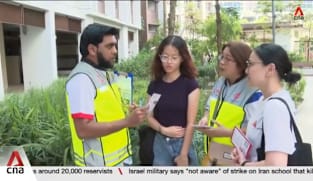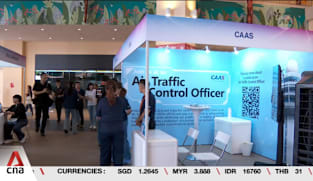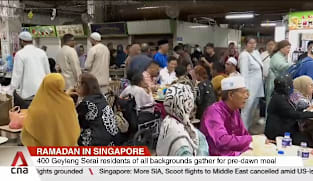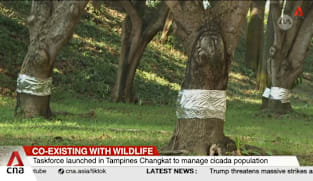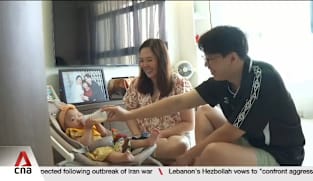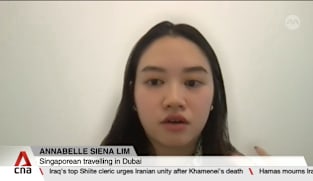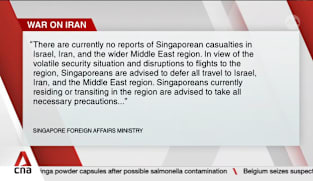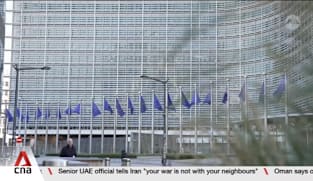Adjournment motion on arts education: cultivating creativity in classrooms and communities
Developing a creative citizenry is a bread-and-butter issue as creative thinking and innovation are increasingly critical skills, essential for Singapore’s workforce to be competitive globally. NMP Usha Chandradas made this point in Parliament on Wednesday (Aug 7) when she moved an adjournment motion on the need to better cultivate creativity in classrooms and the community. Ms Chandradas said a robust arts education is key to developing creativity. Her suggestions included adding more exposure to theatre and drama education in the primary school curriculum. She explained that this could help students become more confident and articulate, and develop ideas through acting and improvisation. Ms Chandradas said arts education should also be made part of systematic interdisciplinary learning instead of being taught primarily as a standalone subject. She called for more support and respect for arts teachers, and clear policies on whether they are allowed to maintain their own creative practices. In the public domain, she urged better policies on labelling of artworks and even making comprehensive wall text mandatory when works are displayed in Government buildings. This has the potential to educate people as they go about their everyday business, she said. In response to her motion, Senior Parliamentary Secretary for Education Shawn Huang said arts education has been strengthened in schools and higher education institutions, with a suite of provisions catering to students with varying levels of interest and ability. Students have been empowered to go beyond appreciating the works of artists and musicians, to creating and communicating their own ideas. Singapore has found its arts curriculum standards and teaching methods to be on par with those of other developed countries, he said. His ministry has also forged more partnerships with Government agencies and the arts industry to give students more exposure to real-world artistic experiences. Mr Huang noted that good progress has been made in developing students’ creativity through the curriculum as a whole. Singapore came up tops among 64 education systems when it came to creative thinking in the 2022 Programme for International Student Assessment (PISA) study. Mr Huang said his ministry has also enhanced support for arts teachers over the years.
Developing a creative citizenry is a bread-and-butter issue as creative thinking and innovation are increasingly critical skills, essential for Singapore’s workforce to be competitive globally. NMP Usha Chandradas made this point in Parliament on Wednesday (Aug 7) when she moved an adjournment motion on the need to better cultivate creativity in classrooms and the community. Ms Chandradas said a robust arts education is key to developing creativity. Her suggestions included adding more exposure to theatre and drama education in the primary school curriculum. She explained that this could help students become more confident and articulate, and develop ideas through acting and improvisation. Ms Chandradas said arts education should also be made part of systematic interdisciplinary learning instead of being taught primarily as a standalone subject. She called for more support and respect for arts teachers, and clear policies on whether they are allowed to maintain their own creative practices. In the public domain, she urged better policies on labelling of artworks and even making comprehensive wall text mandatory when works are displayed in Government buildings. This has the potential to educate people as they go about their everyday business, she said. In response to her motion, Senior Parliamentary Secretary for Education Shawn Huang said arts education has been strengthened in schools and higher education institutions, with a suite of provisions catering to students with varying levels of interest and ability. Students have been empowered to go beyond appreciating the works of artists and musicians, to creating and communicating their own ideas. Singapore has found its arts curriculum standards and teaching methods to be on par with those of other developed countries, he said. His ministry has also forged more partnerships with Government agencies and the arts industry to give students more exposure to real-world artistic experiences. Mr Huang noted that good progress has been made in developing students’ creativity through the curriculum as a whole. Singapore came up tops among 64 education systems when it came to creative thinking in the 2022 Programme for International Student Assessment (PISA) study. Mr Huang said his ministry has also enhanced support for arts teachers over the years.








